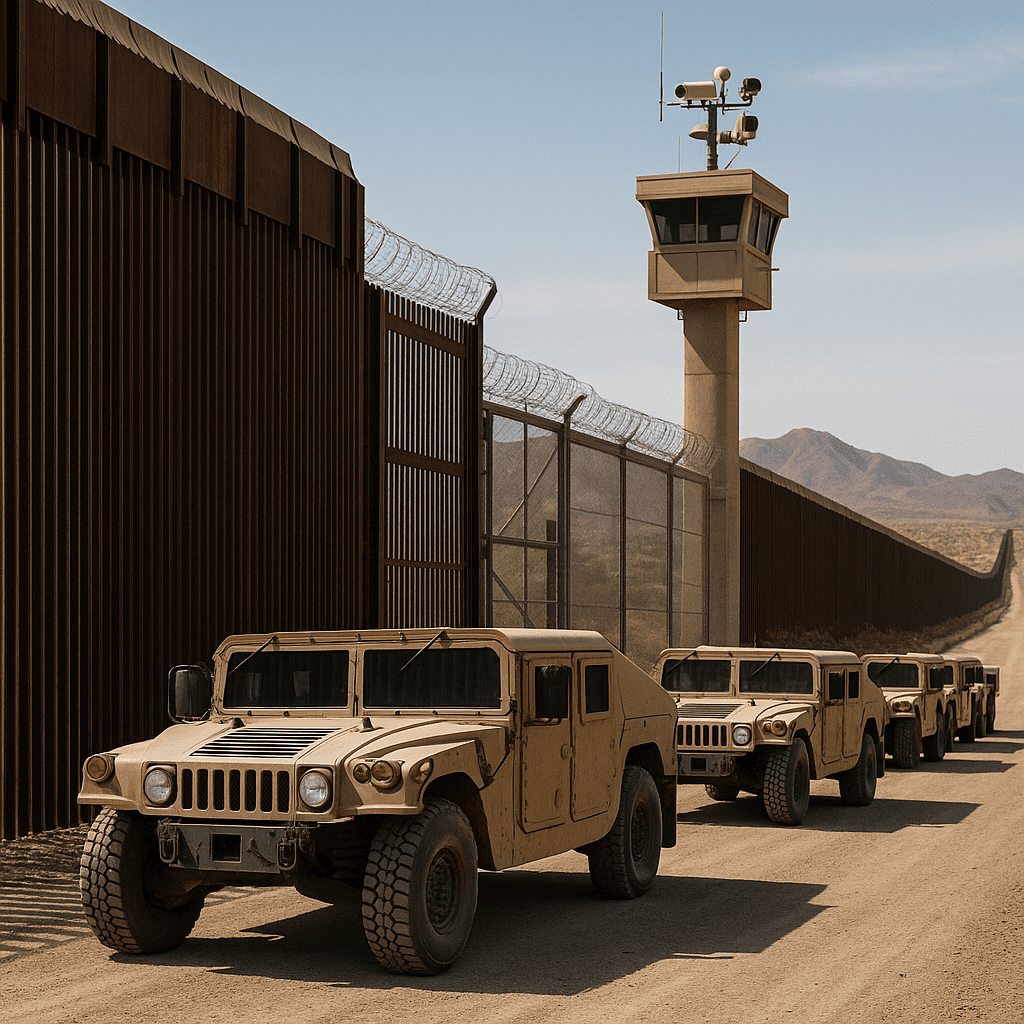In a decisive move to bolster national security, President Donald J. Trump has signed Executive Order 14167, titled “Clarifying the Military’s Role in Protecting the Territorial Integrity of the United States.” This directive underscores the administration’s commitment to safeguarding the nation’s borders by delineating the responsibilities of the Armed Forces in border protection efforts.
The executive order emphasizes the paramount importance of protecting the sovereignty and territorial integrity of the United States. It acknowledges the historical role of the military in securing national borders against various threats, including unlawful incursions and transnational criminal activities. By formalizing this role, the administration aims to enhance the effectiveness of border security operations.
A key aspect of the order is the deployment of military resources to support existing border enforcement agencies. This collaboration is intended to address challenges such as illegal immigration, drug trafficking, and potential terrorist infiltration. The integration of military capabilities is expected to provide a robust response to these complex issues.
However, the implementation of this policy introduces certain trade-offs. The increased involvement of the military in domestic affairs necessitates careful coordination to ensure compliance with the Posse Comitatus Act, which restricts the use of federal military personnel in civilian law enforcement roles. This legal framework requires that military support be limited to specific functions that do not involve direct enforcement actions.
Additionally, the expansion of military responsibilities may lead to bureaucratic complexities. Coordinating operations between the Department of Defense and agencies like the Department of Homeland Security requires clear communication channels and defined roles to prevent overlap and inefficiencies. Establishing these protocols is essential to maintain operational effectiveness.
Resource allocation is another consideration. Diverting military assets to border security tasks could impact the readiness of forces for other national defense missions. Balancing these commitments is crucial to ensure that the military remains prepared to address a range of security challenges.
The financial implications of this policy are also noteworthy. Deploying military personnel and equipment to the border entails significant expenditures. Budgetary planning must account for these costs to avoid unintended fiscal strain on defense resources.
Despite these challenges, the administration asserts that the integration of military support is a practical measure to enhance border security. The executive order provides a framework for this collaboration, aiming to strengthen the nation’s ability to protect its borders effectively.
While the policy presents certain inefficiencies and requires careful management of trade-offs, it reflects a proactive approach to addressing border security concerns. The administration’s commitment to refining and adapting strategies ensures that the policy evolves to meet the nation’s security needs effectively.
—
Miles Harrington reports on national sovereignty and America’s standing in international law. He follows treaties, border authority, and how power shifts across global institutions.


